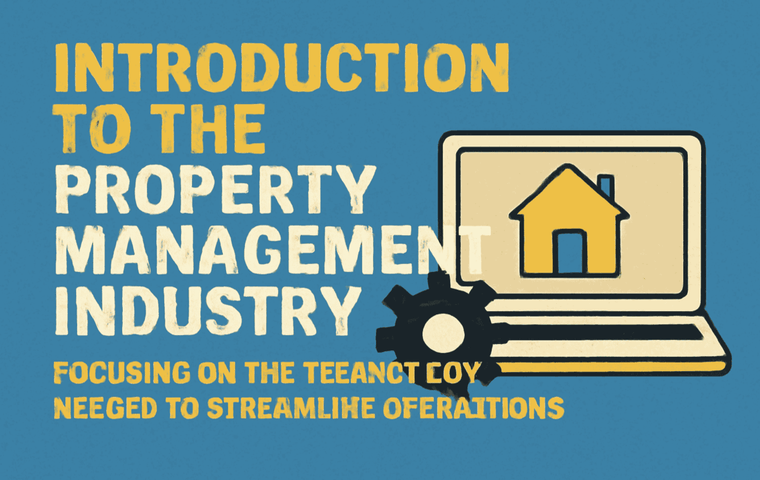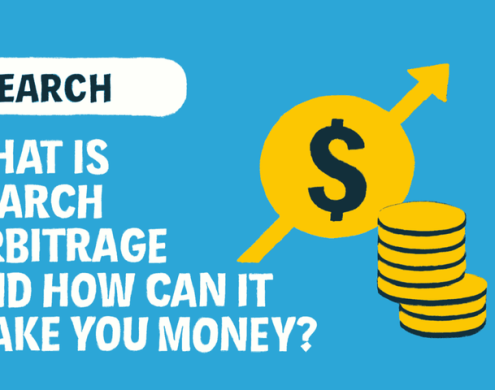Currently Empty: $0.00

An Introduction to the Property Management Industry, with a Focus on the Technology Needed to Make Things Run More Smoothly
The property management industry has changed a lot in the previous ten years because of new technologies that have changed how property managers work with renters, owners, and vendors. As the real estate market grows, it is more important than ever to run things more smoothly. This article goes into detail about property management automation software and other technology solutions that make operations run more smoothly, which makes them more efficient, cost-effective, and scalable.
Learning about property management and the problems it faces
Property management is the process of managing residential, commercial, or industrial real estate. Property managers have a lot of different jobs, such as collecting rent, handling maintenance issues, talking to tenants, leasing properties, and making financial reports. Property managers have a lot of different responsibilities, but the problems they confront are typically the same. They are:
Manual Processes: A lot of property management work is still done by hand, which causes mistakes and wastes time.
Time Constraints: Taking care of more than one property or unit might take a lot of time and effort every day.
Tenant Satisfaction: Keeping tenants happy is very important, but it can be hard to respond to requests and complaints on time without the right tools in place.
Managing money: It can be hard to maintain track of rent payments, deal with maintenance budgets, and keep up with your financial records.
As technology gets better, the property management business is starting to use tech solutions and automation technologies that help with these problems. Automation may make monotonous work easier, improve communication, and give more accurate financial reports. All of these things can help your business run more smoothly.
How Automation Helps Manage Property
Using technology to make repetitive, time-consuming chores easier is what automation in property management means. Automation may make property management easier and let property managers focus on other important activities. For example, it can help with collecting rent, scheduling repairs, and making financial reports.
Here are some important areas where automation is very important:
1. Rent collection that happens on its own
Tracking and collecting rent payments is one of the most time-consuming jobs for property managers. Checks and in-person payments are two common ways to collect rent, but they can be slow and lead to late payments. Property management automation software lets property managers set up systems that automatically collect rent. Tenants can pay their rent online using a variety of methods, such as credit cards, direct debits, or digital wallets. All of these are built into the property management software.
For example, a property manager might be in charge of 100 residential units. The manager can set up automatic reminders for rent payments and even impose late penalties automatically if payments aren’t made on time with automation software. The system can also give tenants receipts once they pay, so you don’t have to keep track of them manually.
2. Requests and Management of Maintenance
Managing upkeep is another important part of property management. In the past, property managers would get calls from renters, write down requests for repairs, and set up times for them to be done. This technique can be messy and not work well.
Tenants can send in repair requests instantly through an online portal or smartphone thanks to automation. The technology may automatically give maintenance workers duties, keep track of their progress, and let tenants know when things change. This makes sure that demands for maintenance are taken care of quickly, which makes tenants happier.
For instance, a tenant uses the property management app to say that a faucet is leaking. The software automatically makes an appointment for a plumber to come, sends the tenant an email to confirm the appointment, and lets the property manager know how the repair is going.
3. Managing leases and automating documents
Managing lease agreements and renewals is an important part of property management, but doing it by hand may be a pain. With property management software, you can create leases automatically, get reminders to renew them, and sign them digitally.
For instance, when a lease is about to end, the property management software sends a reminder to both the renter and the property manager. This gives them time to renew the lease or look for new tenants. You can automatically create the lease agreement, and the tenant may sign it online, so you don’t have to deal with paper.
4. Accounting and Reporting on Money
Managing money is one of the hardest parts of managing property. Property managers have to do a lot of financial work, like collecting rent, figuring out taxes, keeping track of expenses, and making financial reports.
Automated property management software makes this process easier by giving you options for automatic invoicing, tracking expenses, and making detailed financial reports. The system can also keep track of security deposits, maintenance charges, and other financial information, making it easy for property managers to keep correct records.
For example, the property manager can automatically create an income statement at the end of each month that shows rent income, maintenance charges, and any other financial information. This saves time and lowers the chance of making a mistake.
Property management technology solutions that make operations run more smoothly
Automation is the most important part of contemporary property management, but there are additional tech solutions that can make things even better, make tenants happier, and make operations easier.
1. Software for managing property in the cloud
Cloud-based solutions are becoming more and more common in property management. Property managers can get to important information and do their jobs from anywhere, at any time, and on any device thanks to cloud technology. This flexibility is quite useful, especially for property managers who have more than one property or who work from home.
For instance, a property manager who has both residential and commercial properties can use a mobile app to get real-time information on rent collection, maintenance requests, and financial reports while they are on the move.
2. Portals for tenants and owners
Making the digital experience for tenants and property owners as smooth as possible may make a big difference in how happy they are and how well they communicate. Tenant and owner portals are common features of property management software. Tenants can use these portals to pay rent, ask for repairs, and talk to property managers. Owners may see reports and updates, keep track of rental money, and keep an eye on how well their properties are doing overall.
For example, tenants can pay their rent, see their payment history, and talk directly to property management about any problems they have through the site. Property owners can connect onto their portal to see data on income, property performance, and other important numbers.
3. AI and Predictive Analytics
AI and predictive analytics are changing property management by making it easier to make decisions and see what will happen in the future. For example, AI can tell you when a property could need repairs or when it’s time to renew a lease. Predictive analytics can help property managers spot patterns in how tenants act, when they pay their rent, and when they could leave.
For instance, a property management system can use AI to figure out when a roof will need to be replaced by looking at past data and local weather patterns. This lets property managers plan ahead for repairs and avoid having to buy expensive new things at the last minute.
4. Leasing and Virtual Tours
In today’s digital world, people who want to rent a place are more and more likely to want to see it in person first. Property managers may show off their homes from a distance using virtual tours and leasing technology solutions, so they don’t have to meet with people in person.
For example, a possible tenant can take a 3D tour of an apartment or business space from their own home, looking at every room and even seeing things like measurements and amenities. After they make up their minds, they can apply for the lease and sign it online.
The Good Things About Using Technology in Property Management
There are several benefits to using technology and automation in property management. Here are several important benefits:
1. More efficient
Automation gets rid of duties that take a lot of time, so property managers may focus on more important and strategic responsibilities. You can do routine office tasks like keeping track of payments or running maintenance faster and with fewer mistakes.
2. Happier tenants
Tenants get a smoother and more responsive experience with technology solutions. Technology makes life easier for tenants, which makes them happier and keeps them longer. For example, they may pay their rent online and keep track of maintenance in real time.
3. Saving money
Property managers can cut down on the need for manual work and mistakes that cost a lot of money by automating several parts of property management. Automation tools also help find maintenance problems before they get worse, which saves money in the long run.
4. Better Reporting and Data
Property managers can use automation software to make detailed reports on how well their finances are doing, how tenants are behaving, and how many repair requests they get. This information gives us useful information that can help us make better decisions and run things more efficiently.
The property management sector is going through a digital transition, and technology and automation are key to making things run more smoothly. Property managers that want to cut expenses, boost tenant happiness, and make their jobs easier need property management automation software and technology solutions. Property managers may protect their businesses from the future and make things better for both tenants and property owners by using these new ideas.
Property managers can keep their businesses competitive in a world that is becoming more and more digital by carefully choosing and using the right technologies. It’s evident that technology can help with property management, and those that embrace these changes will continue to do well in the changing real estate market.
This article gives a full overview of property management automation software and technology that can help make operations run more smoothly. It combines theory, examples from real life, and real-world applications to provide readers a full understanding of the subject. The content is set out to be useful, interesting, and instructional, with the goal of being helpful to both new and experienced property managers.






